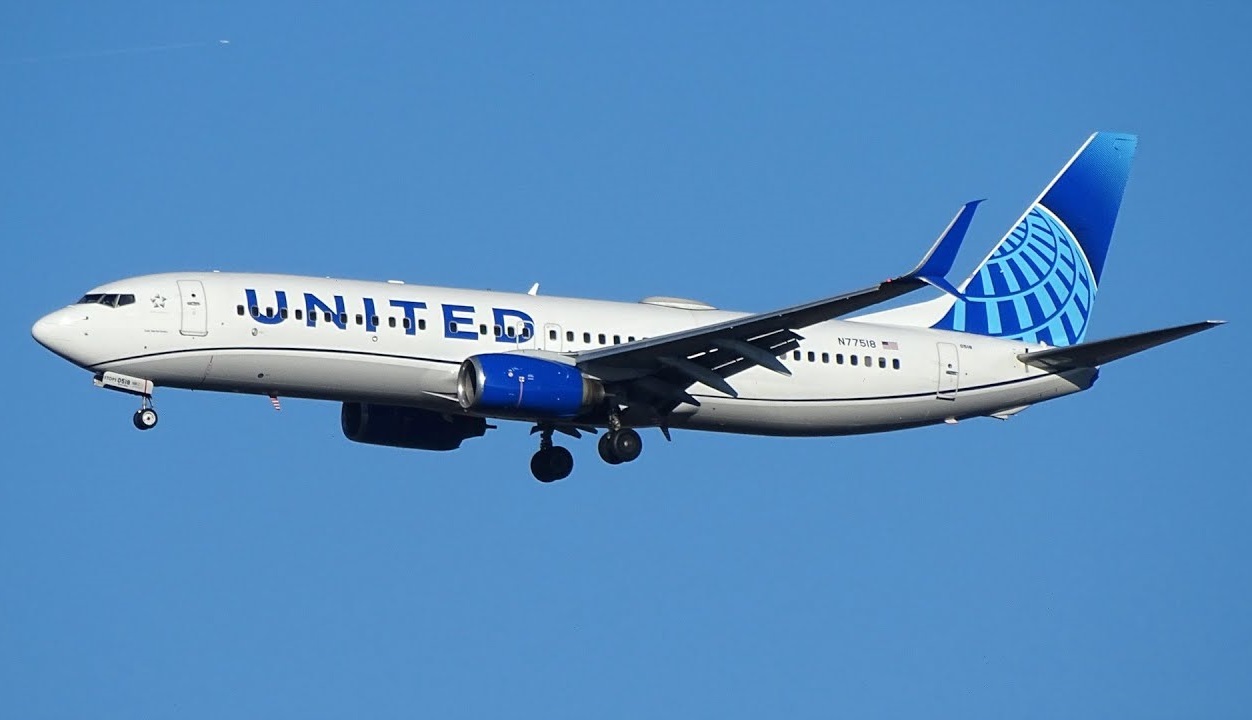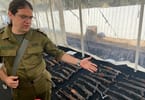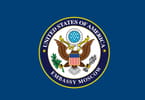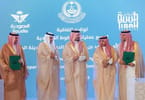Today in an interview released by the US State Department Secretary Antony J. Blinken With Andrea Mitchell of NBC The discussion point was President Vladimir Putin from Russia and his upcoming war plans and vision for Ukraine.
AJỤJỤ: Mr. Secretary, thank you so much for being with us. I wanted to ask you about what is going on right now. The chairman of the Joint Chiefs had told Congress that this will likely last years, this war. A protracted war is going to last years, according to the chairman of the Joint Chiefs. Will today’s new commitment of Javelins, anti-tank weapons to Ukraine shorten that timeline?
Odeakwụkwọ BLINKEN: Andrea, we want to see this come to an end as quickly as possible, and that’s exactly why we’re making sure that we’re doing everything we can to support Ukraine and to give them the assistance that they need to put pressure and to increase pressure on Russia, even as we’re strengthening our – the defenses of our NATO Alliance.
AJỤJỤ: So what about the Javelins?
Odeakwụkwọ BLINKEN: So the Javelins, we just did – the President authorized another $100 million in a drawdown that will provide more Javelins to our Ukrainian partners. Put this in perspective: Between the United States and other allies and partners, for every Russian tank in Ukraine, we have provided or will soon provide 10 anti-tank systems – 10 for every single Russian tank. So in terms of what they need to act quickly and act effectively, to deal with the planes that are firing at them from the skies, the tanks that are trying to destroy their cities from the ground, they have the tools that they need, they’re going to keep getting them, and we’re going to keep sustaining that.
But to the chairman’s point, and the President said this as well, as much as we want to see this come to an end as soon as possible to stop the death and destruction that’s being wrought by Russia in Ukraine, there is also a very likely scenario by which this goes on for some time. The Russians, even as they’re moving their forces, they’ve retreated from Kyiv, they’ve retreated from the north and the west, they’re consolidating forces in the east, in the Donbas. They have a lot of force still left. The Ukrainians have something else that’s ultimately stronger, and that is a fierce determination and will to defend their country with the support of many countries around the world.
AJỤJỤ: Can they win?
Odeakwụkwọ BLINKEN: So ultimately, yes, because what is a success, what is victory? It’s holding on to the sovereignty and independence of its country. And there is no scenario by which over time that will not happen. The problem is it may take time, and in the meantime, tremendous death and destruction. But what is so powerful here is that the Ukrainians have made it very clear that they will not subjugate themselves to Vladimir Putin’s will.
AJỤJỤ: But no matter how much we give them, how can Ukraine ever last against Russia for the long term unless the U.S. and other countries guarantee its borders, its safety, as President Zelenskyy wants?
Odeakwụkwọ BLINKEN: Well, first things first. The first thing is to see that this aggression by Russia comes to an end, that there is a ceasefire, that Russia withdraws its forces, and that Ukraine asserts its sovereignty and its independence. But then, yes, we have to do things to make sure that, to the best of our ability and Ukraine’s ability, this can’t happen again, that Russia is deterred, that Ukraine is defended. We’re having constant conversations with —
AJỤJỤ: Will we guarantee that?
Odeakwụkwọ BLINKEN: So we’re having —
AJỤJỤ: Will the U.S. get more involved?
Odeakwụkwọ BLINKEN: We’re having constant conversations with our Ukrainian partners pretty much on a daily basis, including about what it is we and others could do in the event of a successful negotiation to defend them and help them defend themselves going forward. All of this is the subject of conversations right now. I’m not going to get ahead of that, but we’re going to do everything we can, others will do what they can to make sure that Ukraine can defend itself and deter aggression being repeated by Russia.
AJỤJỤ: President Putin has said he wants to recreate the Soviet Union, the glory of the Soviet Union. With those ambitions, how can Ukraine ever be safe as long as Putin’s in power?
Odeakwụkwọ BLINKEN: Well, two things: First, in terms of what Russia set out to do, what Putin set out to do in Ukraine, this has already been a strategic setback, if not a failure. Because keep in mind, Andrea, the goal that Putin set in his own words was to eliminate Ukraine’s sovereignty and independence. He sees it as a state that doesn’t deserve to be independent, that needs to be subsumed back into some kind of greater Russia. That is not happening, not just the retreat from Kyiv but the fact that no matter how you play this out the Ukrainians are not going to subject themselves to a Russian dictatorship.
AJỤJỤ: He’s more popular than ever at home.
Odeakwụkwọ BLINKEN: So he may be for now more popular. Of course, if you were getting fed a steady diet, morning, noon, and night of propaganda, which unfortunately the Russian people are, that speaks to what popularity he has. At the same time, when people are responding to polls, they may be very much afraid of giving the truthful answer. There’s now a 15-year criminal penalty for anyone who in any way opposes the so-called special military operation. So you have to take that with a grain of salt.
Having said that, I think there is a real fundamental problem, which is the Russians don’t get the factual information that they need to make judgments for themselves, and that’s because of a system that Vladimir Putin has perfected in which that information is denied them.
AJỤJỤ: President Biden has called Putin a butcher, a war criminal. You have said that the people responsible for the crimes in Bucha and those who ordered them will be held accountable.
Odeakwụkwọ BLINKEN: Nke ahụ dị mma.
AJỤJỤ: How can that happen without Vladimir Putin standing trial?
Odeakwụkwọ BLINKEN: First, Andrea, the wheels of accountability can move slowly, but they move, and someday, someway, somewhere, those who committed these crimes and those who ordered the crimes will be held accountable. But it takes time, and part of this is building the case, part of this is – which we’re doing and others are doing. Part – there’s a Ukrainian special prosecutor who is working on this. We’re supporting her efforts. We set up at the United Nations at the Human Rights Council a Commission of Inquiry that’s looking into this as well. We’re supporting those efforts, building the case, getting the evidence, documenting it. The International Criminal Court is looking at this too.
But all of this will play out over time, and we have to build the case, we have to get the evidence, we have to document it – we’re doing all of that. So is that next month, next year, in five years? It could take time, but I think – I can guarantee you there will be a relentless effort to make sure that those responsible for what we’re seeing are held accountable. And what we’re seeing, Andrea, is I think beyond what any of us even could fully anticipate. We said before Russia committed this aggression that there would be atrocities, that it was a deliberate part of their campaign. And even knowing that, when this Russian tide receded from Bucha and we saw the death and destruction left in its wake, and we saw what that looked like, including people who had been assassinated – and in fact, their hands tied – executed, their hands tied behind their backs – the abuse committed against women, against children, it’s horrific. And there has to be accountability for it.
AJỤJỤ: Did you see the video that President Zelenskyy provided to the United Nations, or other images from Bucha? As you describe it, the atrocities, you have small children. What do you tell your children? What would you tell them?
Odeakwụkwọ BLINKEN: Well, thankfully, they’re too small to actually see that, be able to digest it and to understand it.
AJỤJỤ: But some day, they’ll – they will —
Odeakwụkwọ BLINKEN: But some day they will. And I have to tell you, Andrea, I think – and I suspect most of us have the same reaction, especially those of who have children or even small children – you put yourself in the shoes of the father, the mother, the grandfather, the grandmother who’s in the middle of this, who is suffering this, whose kids’ lives are at stake or in jeopardy, or who have been lost. And it hits you – I said the other day, seeing these images from Bucha was like a punch to the gut. It takes the wind out of you. You can know something intellectually, but then when you see these images and you translate that into your own life, when you ask yourself, “What if this was happening in my town, to my kids? To my family?” I think it only reinforces our determination to do everything we can to support the Ukrainians, to put pressure on Russia, to bring this to an end as quickly as possible.
AJỤJỤ: Your UN ambassador, Linda Thomas-Greenfield, described these atrocities and compared it by extension to the Holocaust. Talked about what the council in Mariupol had described, people forcibly – tens of thousands – taken from their homes, taken to Russia and put in camps. Isn’t that the very definition of genocide?
Odeakwụkwọ BLINKEN: Well, we have to get all of the information, all of the evidence. We have to, as I said, document everything that’s happened, fully understand what’s happened. It’s an interesting irony in a sense. This is in some ways the most documented war in real time that we’ve experienced because of technology, because of smart phones, because of the incredible courage of reporters who remained in Ukraine. But even so, the things that we’re not seeing in real time, including Bucha – and it’s only when that tide recedes that you see what’s actually happened.
So I think we’re going to learn a lot more in the days and weeks ahead. I’m afraid that what we’re going to learn is even more horrifying.
AJỤJỤ: Do we know anything about what’s happening in these Russian camps with Ukrainians, and do we have any hope of getting them back?
Odeakwụkwọ BLINKEN: We don’t have good information on that, but certainly we’re doing everything we can. Other countries are doing everything they can to make sure that anyone who is being detained is released.
AJỤJỤ: The U.S. has promised to take in 100,000 of these millions of refugees. Europe has opened their doors, put them in their homes.
Odeakwụkwọ BLINKEN: They have.
AJỤJỤ: NBC has reported on at least two women, two Ukrainian women on the southern border, who were taken and for two weeks put behind barbed wire and at times shackled in an ICE camp. How can we do that compared to the way Europe is welcoming them?
Odeakwụkwọ BLINKEN: Well, I’m not aware of those reports. It’s something I’ll certainly look into. But here’s what’s going on. First, Europeans have been extraordinary in their generosity, in opening their hearts, opening their arms, opening their homes to so many people. Our friends in Poland, in the first instance, have had more than 2 million people come through Poland. Many of the refugees – most of them, in fact – want to stay close to home because what you’re seeing, Andrea – and I know you’ve seen this firsthand – is virtually everyone is a woman and children. Most of the men between 18 and 60 have stayed in Ukraine to fight. They like to stay close at hand. They want to go back, they want to be reunited with their husbands, with their brothers, with their sons. And once they’re in Europe, they also have a lot of freedom of movement and the ability to reunite with other family members there.
Having said that, President Biden made clear that we will welcome 100,000 Ukrainians. We’re ‑‑
AJỤJỤ: Is there a time frame?
Odeakwụkwọ BLINKEN: So it’s over a period of time. What we’re doing right now is looking at what are the legal pathways that we can do that because there’s the normal refugee program, but that, by definition, takes a long time. It takes a couple years –
AJỤJỤ: Quick question before we lose time: sanctions.
Odeakwụkwọ BLINKEN: Yeah.
AJỤJỤ: New sanctions, now Europe is putting on new sanctions. China and India keep buying fuel from Russia and fueling this war, helping to fund Putin’s war. Why aren’t we sanctioning China and India?
Odeakwụkwọ BLINKEN: So in the first instance, Andrea, these sanctions are having a dramatic impact.
AJỤJỤ: But there are big loopholes, and Europe still is buying natural gas and still will for another year.
Odeakwụkwọ BLINKEN: There are loopholes that, piece by piece, one by one, we’re trying to close. Sometimes that takes time. But let’s look at what’s already happened. The sanctions cumulatively have put the Russian economy into a deep recession. And what we’re seeing is a likely contraction of the Russian economy by about 15 percent. That is dramatic. We’ve seen something else. We’ve seen an exodus from Russia of virtually every major company in the world. And Putin, in the space of a matter of weeks, has basically shut down Russia to the world. All of the opening, all of the opportunity that took place over the last 30 years is gone. And the Russians will feel that, I’m afraid, in their daily lives. They won’t be able to buy the things they’re used to buying, and they won’t be able to afford to buy what they’d like to buy.
And beyond that, the export controls that we put in place, denying Russia the technology that it needs to modernize critical industries like defense, like energy extraction – over time, those are going to have an even greater impact.
So we’re already seeing a dramatic impact to this. And yes, there are places where different countries are doing different things. We’re working every single day to close that down.
AJỤJỤ: Quick question on Iran before I let you go. You’re talking about Iran here in Brussels. Is Iran’s Revolutionary Guard – which has attacked Americans and our allies – a terrorist organization?
Odeakwụkwọ BLINKEN: So, they are. And —
AJỤJỤ: Will they continue to be?
Odeakwụkwọ BLINKEN: I’m not going to get into the details of where we are on the negotiations. I would say simply that I’m not overly optimistic at the prospects of actually getting an agreement to conclusion, despite all the efforts we put into it and despite the fact that I believe we would be – our security would be better off. We’re not there. We’ll have to see if we can close —
AJỤJỤ: Oge ọ na-agwụ?
Odeakwụkwọ BLINKEN: And time is getting extremely short. But this is something that we’ll be talking to our European partners about this afternoon and then over the course of the next day. We’ve been working in very close coordination with the Europeans, with the European Union, with France, with Germany, with the UK.
So we’ll see where we get. I continue to believe it would be in the best interests of our country if we can get back into compliance with the deal, if Iran will do the same. We’re not there.
AJỤJỤ: Thank you very much, Mr. Secretary. Thanks for your patience.
Odeakwụkwọ BLINKEN: Thanks, Andrea.
AJỤJỤ: Ọ dị mma ịhụ gị.
Odeakwụkwọ BLINKEN: You as well. Thanks.
IHE Ị GA-Ewepụ na edemede a:
- But to the chairman's point, and the President said this as well, as much as we want to see this come to an end as soon as possible to stop the death and destruction that's being wrought by Russia in Ukraine, there is also a very likely scenario by which this goes on for some time.
- So in terms of what they need to act quickly and act effectively, to deal with the planes that are firing at them from the skies, the tanks that are trying to destroy their cities from the ground, they have the tools that they need, they're going to keep getting them, and we're going to keep sustaining that.
- Andrea, we want to see this come to an end as quickly as possible, and that's exactly why we're making sure that we're doing everything we can to support Ukraine and to give them the assistance that they need to put pressure and to increase pressure on Russia, even as we're strengthening our – the defenses of our NATO Alliance.























